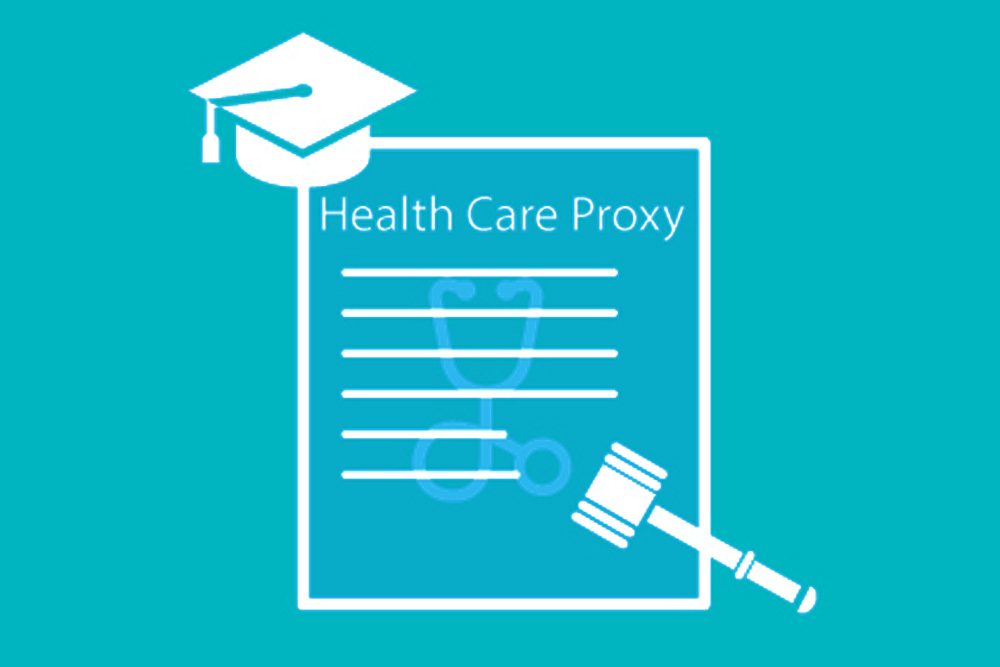When the time comes to plan for the future and your family, it can always a heavy discussion. The thought of death or leaving loved ones can be painful. The truth is that it affects the best of us because we don’t want to put our family through any emotional and financial hardships. While it’s sometimes difficult to discuss, it’s important to get through it and provide for those whom you love. A few ways to provide I haven’t blogged about yet is through a health care proxy (“HCP”) and end of life care (“EoLC”). Take a deep breath because we’re going to cover these two important aspects. A lot of this blog will be dedicated as a resource list for you.
End-Of-Life Care
End of life care has no official definition but deals with the overall state of someone in their last stages of life. It gives someone else the power of attorney and legal authorization to make healthcare-related decisions on his/her behalf. In Massachusetts, you should name a health care agent as well as an alternate agent. Not only is this the law, it’s also smart. Your immediate family and both healthcare agents should be aware of your wishes. However, don’t stop there. You should open up the conversation to the closest people in your life outside of your family who would be affected by your death. If you belong to a church and wish to have a funeral and memorial service, the leader of the church should be informed as well.
Health Care Proxy
Know that Health Care Proxies are revocable documents, meaning they can be changed. One of four things has to occur for an existing Health Care Proxy to become void in Massachusetts. Based on the Massachusetts Medical Society’s website, here is the official list:
1. A new Health Care Proxy document is signed at a later date, making the existing one void and the new one effective.
2. A legal separation or divorce from your spouse who was named as your primary (and not the alternate) health care agent.
3. “You notify your existing agent, doctor, or other health care provider, orally or in writing, that you want to revoke your Health Care Proxy.” —Source: Massachusetts Medical Society
4. Tearing up or destroying the current Proxy, crossing it out, or marking the document.
Massachusetts Health Care Proxy provision – 2 witnesses – notary – general or specific must have a conversation
Health Care Proxy Resources
Below is a great starting list of resources for you to research and explore. Some people will want to go through this list with their loved ones, while others may want to dig into it on their own. I’ve compiled a list I feel is sufficient to bring many topics to light in either situation.
The Conversation Project is dedicated to helping people talk about their wishes for end-of-life care. They believe that the best place to discuss family matters and end-of-life care is at the dinner table when there’s ample time. I firmly agree with them. As with all matters regarding last wills and testaments, the best time is when there is time. Below are 3 great downloadable starter documents from their website:
• Conversation Starter Kit
• How to Talk to Your Doctor
• How to Choose a Health Care Proxy and How to Be a Health Care Proxy
NHDD.org is an initiative of The Conversation Project. NHDD “exists as a 50-state annual initiative to provide clear, concise, and consistent information on healthcare decision-making to both the public and providers/facilities through the widespread availability and dissemination of simple, free, and uniform tools (not just forms) to guide the process. NHDD entails 50 independent, but coordinated, state and local events (necessitated by the difference in state laws and dynamics) supported by a national media and public education campaign.” — Source: NHDD
AARP, a well-known resource for millions of American retired citizens, also made our list. AARP features an End-of-Life Planning resource center with plenty of diverse perspectives:
• Advance Care Planning Discussions
• Opening Discussions With Adult Children About End-Of-Life Planning
• Considerations For Siblings Planning Care For Their Parents
MyDirectives, a service of ADVault, Inc., is a free online platform that gives people the ability to digitize their voices and treatment wishes in a comprehensive legal advance care plan. The technology is securely stored in the cloud and available on-demand 24/7/365 on a global scale. Right off the top, this sounds very impressive and can be a tremendous timesaver for families across the board. “MyDirectives also features a Discussion Guide and Conversation Starters to help people have discussions with doctors, family and healthcare agents. The new MyDirectives
MOBILE App makes users’ emergency advance care plans accessible even when their iPhones are locked.” — Source: NHDD
The American Bar Association (ABA) has a list of resources for both patients and their healthcare proxies. I’ve borrowed their list of top 9 PDFs from their website:
• How to Select Your Health Care Agent or Proxy
• How Do You Weigh Odds of Survival?
• Personal Priorities and Spiritual Values Important to Your Medical Decisions
• After Death Decisions to Think About Now
• Conversation Scripts: Getting Past the Resistance
• The Proxy Quiz for Family & Physician
• What to Do After Signing Your Health Care Advance Directive
• Guide for Health Care Proxies
• Health Decisions Resources
The National Physician Orders for Life-Sustaining Treatment (POLST) is another approach to end-of-life planning based on health care conversations between patients, loved ones, and healthcare professionals. Once you explore their website, be sure to find the videos and patient stories.
Aging With Dignity has a program known as the Five Wishes. The Five Wishes living will document helps individuals express care options and preferences for families. “The advance directive meets the legal requirements in most states and is available in 20 languages for a nominal fee.” This could be a viable resource for families of lower socioeconomic class. It could also assist immigrant families who are U.S. citizens but do not natively speak English.
Of all the resources I scoured, I feel these are the most comprehensive to start the end-of-life discussion process. If there is something more you’re looking for, you can most likely find it through the links on these resources or on the NHDD.org page. A lot of the national organizations have associated partnerships, initiatives, and related links to explore.
For questions regarding any of the topics discussed in this blog, please contact me directly at [email protected].
Thank you for reading,
Suzanne Poitras


Recent Comments